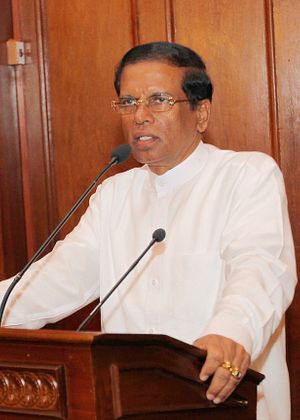Several weeks ago, Chandrika Kumaratunga announced that Sri Lanka would set up a special court to deal with alleged wartime abuses. Kumaratunga is the chairperson of the Office for National Unity and Reconciliation (ONUR); she served as President of Sri Lanka from 1994-2005.
The news about a special court came as a surprise to many people. When the initial announcement was made, Kumaratunga stated that the court was expected to begin its work by late December or early January. Yet it remains unclear if that’s still the case.
There are a multitude of reasons to be concerned about this process. Kusal Perera, a Colombo-based journalist, says that “no credible investigation with victim participation is possible” given the sustained militarization throughout the country’s Northern and Eastern Provinces. Furthermore, Perera believes that, since the administration of President Maithripala Sirisena still refuses to release Tamil political prisoners “with no real charges against them, no domestic process will be taken seriously.” There are also broader questions to ponder, including the nature of international involvement and the additional steps which would be taken to ensure that the process is genuine and inclusive.
Aside from specific concerns about what’s happening with the special court, there are other worries about ONUR. Perera opines that the “whole ONUR is a big fraud. It has no legal status, no social acceptance” and that those leading the body, including Kumaratunga, lack credibility. Regardless of what one thinks about ONUR, an update regarding where things stand at the moment seems warranted. ONUR did not respond to a request for comment.
With 2015 coming to a close, a degree of reflection is in order. Sirisena was sworn in as president almost a year ago and so many of his promises remain unfulfilled. Colombo’s put some commitments on the record and even co-sponsored a resolution on Sri Lanka at the UN Human Rights Council. And Foreign Minister Mangala Samaraweera has provided the international community with plenty of lofty rhetoric during the past twelve months. On the other hand, we’re mostly talking about words and promises, not concrete action.
Transitional justice in particular is likely to prove especially difficult. How much longer might it take to show tangible progress on this front? If the Sirisena administration is truly sincere about dealing with the past and building a genuine peace, it needs to start acting like that is indeed the case.
































